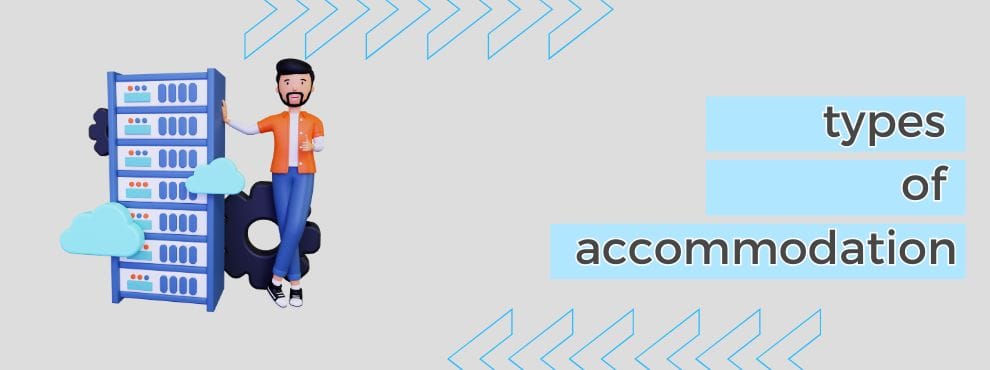When you start an online project, whether it is an online store or a corporate website, one of the first aspects to consider is hosting or web hosting. This service is crucial, as it is where all your site’s information will be stored and how users will be able to access it. However, the world of hosting can be complex due to the wide range of options available, and choosing the right one can make a big difference in the performance, security and scalability of your project.
At IDX Innovadeluxe, we understand that choosing the right hosting is essential to the success of your online business. That’s why, in this article, we’re going to break down the different types of hosting and help you understand which one is best suited to your website’s needs.
Table of contents
what is hosting and why is it important?
Hosting is the space where your website is hosted on the Internet. Think of it as the place where the files, databases, images and content of your site are stored, allowing anyone with internet access to visit it. Without hosting, your site simply could not be available on the web.
However, not all types of hosting are the same. Depending on the size, traffic and complexity of your project, the type of hosting you choose can influence the loading speed, the stability of the site and its ability to grow. In addition, a good hosting service can ensure that your site is available 24 hours a day and protected against cyber-attacks. On the contrary, a bad choice can result in frequent crashes and a bad user experience.
Types of hosting
There are several types of hosting, each designed to meet different user requirements. Below, we will detail the main options available:
Shared hosting is one of the most basic and economical types. In this model, multiple websites share the same physical server and its resources, such as storage space, RAM and bandwidth. It is as if several neighbors live in the same building, using the same utilities such as electricity and water.
This type of hosting is ideal for small projects or for those who are just starting out. Sites with low traffic, such as personal blogs or small online stores with a limited number of products, usually opt for this option due to its low cost. However, the main disadvantage is that by sharing server resources, if any of the neighboring sites consume too many resources, your site could be affected, resulting in slower loading speeds or even temporary crashes.
In addition, the customization and control options are limited, so this type of hosting is not suitable for more complex projects or those that need a high customization capacity.
VPS
VPS (Virtual Private Server) is an option that offers a balance between shared and dedicated hosting. Instead of completely sharing server resources with other users, in a VPS you get an exclusive portion of these resources. Although you are still technically sharing the physical server with other websites, each user has their own virtualized environment, which means that other sites’ problems will not directly affect yours.
VPS is ideal for medium-sized projects that require more resources and flexibility than those offered by shared hosting, but still do not justify the cost of a dedicated server. For example, a growing online store or a blog that is starting to receive considerable traffic can benefit from VPS, as it allows greater control over server configurations and better performance management.
Dedicated hosting
For those projects that need maximum control and performance, dedicated hosting is the most advanced option. With a dedicated server, your website has the entire physical server to itself, without sharing resources with other sites. This gives you a level of total control over server configurations, from the operating system to security settings.
Dedicated hosting is ideal for large online stores, complex web applications or sites that generate a high volume of traffic and require exceptional performance at all times. Although this option is significantly more expensive than VPS or shared hosting, the investment is worth it for companies that cannot afford downtime or performance issues.
In addition, dedicated hosting is highly scalable, as it allows you to easily adapt the server as the project grows.
Cloud hosting
Cloud hosting has become one of the most popular options in recent years. Unlike traditional physical servers, cloud hosting uses a network of interconnected servers, allowing resources to be distributed according to the needs of the website in real time.
One of the main advantages of cloud hosting is its scalability. If your site experiences traffic peaks, additional resources can be allocated automatically, avoiding crashes or slow load times. In addition, since the data is distributed across multiple servers, if one server fails, another can take over the load, ensuring higher availability.
This type of hosting is ideal for growing projects that require flexibility, such as online stores that experience seasonal fluctuations in traffic or websites with dynamic, high-volume content.
Managed Hosting
Managed hosting is an option that offers an additional layer of services. In addition to providing the hosting resources, the hosting company is responsible for managing all technical aspects, such as server configuration, maintenance and upgrades. This frees the site owner from the more complex technical tasks, allowing them to focus on their business.
Managed hosting is especially useful for companies that do not have an in-house technical team or prefer to outsource server management. This type of hosting is commonly used for platforms such as WordPress, where hosting providers optimize their servers specifically for optimal performance on that CMS (Content Management System).
how to choose the right hosting?
Choosing the right hosting will depend on several key factors, such as the size and type of your project, expected traffic, your budget and your scalability needs. If you are starting out with a small site or an online store with only a few products, shared hosting may be sufficient. However, if you foresee constant growth or need customization and control, a VPS or even a dedicated server may be a better option.
Also, consider the technical support offered by the hosting provider, as fast and efficient assistance at critical moments is essential for the success of any online project.
Conclusion
Hosting is one of the most important decisions you will make when launching or managing an online project. Understanding the differences between the available options, from shared to dedicated or cloud hosting, will help you choose the solution that best suits your current and future needs.
At IDX Innovadeluxe, we know that each project is unique, so we advise you to find the most suitable type of hosting for your online store or website. Whatever your needs are, from marketing to store creation, we help you make informed decisions so that your business grows solidly and securely.
Related Posts





Deja un comentario